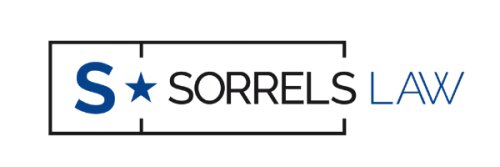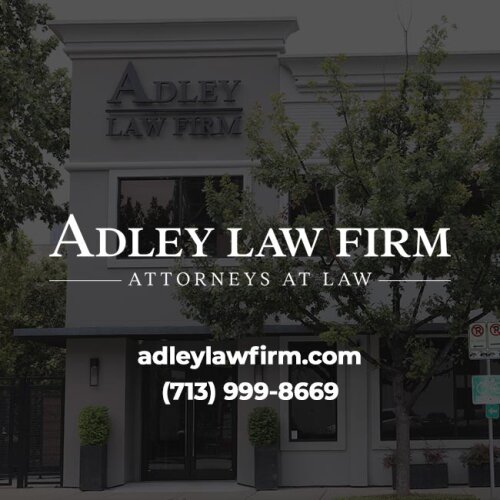Best Drugs & Medical Devices Lawyers in Texas
Share your needs with us, get contacted by law firms.
Free. Takes 2 min.
Or refine your search by selecting a city:
List of the best lawyers in Texas, United States
About Drugs & Medical Devices Law in Texas, United States
Drugs and medical devices law in Texas concerns the regulation, approval, distribution, and use of pharmaceutical drugs and medical devices, as well as safety standards for these products. Texas follows both federal and state laws to ensure that medicines and devices such as pacemakers, implants, and prescription medications are safe for consumers. Legal matters may include product liability claims, personal injury lawsuits, regulatory compliance, and medical malpractice actions related to drugs and devices. Both individuals and companies may become involved in legal disputes in this area, making it important to understand relevant laws and regulations.
Why You May Need a Lawyer
People may require legal assistance with drugs and medical devices for several reasons in Texas. If you have suffered injuries or health complications after using a medication or device, you may need to seek compensation for medical bills, lost wages, or pain and suffering. Healthcare providers and pharmacists may require legal advice concerning compliance with state and federal regulations. Manufacturers or distributors can face legal claims over defective or dangerous products. Lawyers help by assessing the merits of your case, navigating complex regulations, dealing with insurance companies, and negotiating settlements or representing clients in court.
Local Laws Overview
Texas law draws on federal regulations from the Food and Drug Administration (FDA) governing the approval, manufacture, and sale of drugs and medical devices. State-specific rules include reporting adverse events, pharmacy regulations managed by the Texas State Board of Pharmacy, and liability standards under the Texas Civil Practice and Remedies Code. Texas law outlines how and when an injured person can bring a lawsuit over product defects and the amount of time allowed to file such claims, called the statute of limitations. Medical device and drug manufacturers must also comply with state consumer protection laws and may be subject to additional penalties if they fail to report safety concerns.
Frequently Asked Questions
What is considered a medical device under Texas law?
A medical device is any instrument, apparatus, implement, machine, implant, or similar item intended for the diagnosis, treatment, or prevention of disease in humans. This includes everything from surgical instruments to pacemakers and some software applications used in treatment.
Who regulates drugs and medical devices in Texas?
The FDA has primary authority over the approval and regulation of drugs and medical devices. In Texas, the Texas Department of State Health Services and the Texas State Board of Pharmacy also play significant regulatory roles, particularly in distribution and pharmacy operations.
What should I do if I was harmed by a prescription drug or medical device?
If you have suffered an injury, seek medical help right away. Keep records of the device or medication, any instructions, receipts, and medical reports. Consult with a lawyer experienced in product liability as soon as possible.
How long do I have to file a lawsuit for injuries caused by a drug or device in Texas?
In Texas, you generally have two years from the date of injury or the date you discovered the injury to file a lawsuit, but exceptions may apply. Prompt legal advice is essential to avoid missing deadlines.
Can I file a lawsuit if a family member died as a result of a defective drug or device?
Yes, certain family members can file a wrongful death lawsuit in Texas if a loved one dies as a result of a defective drug or medical device. A lawyer can help you understand eligibility and the process.
What types of compensation can I seek in a drug or medical device case?
You may be able to claim compensation for medical costs, lost income, pain and suffering, disability, and sometimes punitive damages intended to punish particularly harmful conduct.
Are there class action lawsuits for defective drugs or devices in Texas?
Yes, if many people have been harmed by the same product, a class action lawsuit may be possible. These cases can provide collective relief but may have different outcomes compared to individual lawsuits.
What does “product liability” mean in these cases?
Product liability is the legal responsibility of manufacturers, distributors, or sellers for injuries caused by defective or dangerous products. Plaintiffs must show that the product was defective, that the defect caused their injury, and that they used the product as intended.
Do I need to prove the manufacturer was negligent?
Texas law allows for both negligence and strict liability claims. In some cases, you do not have to prove negligence if you can show the product was defective and caused harm.
What should I bring to my first meeting with a lawyer?
Bring all documentation, such as the label or packaging of the drug or device, prescriptions, medical records, timelines of your use and symptoms, communications with healthcare providers, and any relevant photographs or receipts.
Additional Resources
- Texas Department of State Health Services: Provides information on medical device and pharmaceutical safety. - Texas State Board of Pharmacy: Oversees pharmacy licensing and pharmacy-related consumer issues. - U.S. Food and Drug Administration (FDA): Offers resources on drug and device recalls, safety alerts, and regulatory actions. - Texas Civil Practice and Remedies Code: Source for statutes relating to personal injury and product liability. - Local legal aid organizations: May offer guidance to those who need help accessing legal counsel.
Next Steps
If you believe you have a legal issue involving drugs or medical devices in Texas, start by documenting your experience and gathering your records. Seek medical advice if you are experiencing side effects or injury. Then consult with a Texas lawyer who specializes in pharmaceutical or medical device law. A qualified attorney can assess your claim, advise you of your rights, and develop a strategy to pursue compensation or defend your interests. You can find lawyers through local bar associations, legal referral services, or by contacting legal clinics. Acting promptly increases your chances of a favorable legal outcome.
Lawzana helps you find the best lawyers and law firms in Texas through a curated and pre-screened list of qualified legal professionals. Our platform offers rankings and detailed profiles of attorneys and law firms, allowing you to compare based on practice areas, including Drugs & Medical Devices, experience, and client feedback.
Each profile includes a description of the firm's areas of practice, client reviews, team members and partners, year of establishment, spoken languages, office locations, contact information, social media presence, and any published articles or resources. Most firms on our platform speak English and are experienced in both local and international legal matters.
Get a quote from top-rated law firms in Texas, United States — quickly, securely, and without unnecessary hassle.
Disclaimer:
The information provided on this page is for general informational purposes only and does not constitute legal advice. While we strive to ensure the accuracy and relevance of the content, legal information may change over time, and interpretations of the law can vary. You should always consult with a qualified legal professional for advice specific to your situation.
We disclaim all liability for actions taken or not taken based on the content of this page. If you believe any information is incorrect or outdated, please contact us, and we will review and update it where appropriate.
Browse drugs & medical devices law firms by city in Texas
Refine your search by selecting a city.














